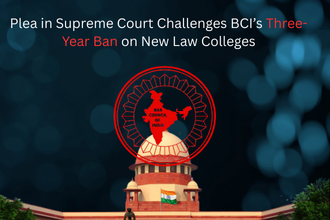In a case involving two senior police officers, the Supreme Court of India recently made a pointed yet mildly humorous remark while dealing with allegations of rape on the false promise of marriage. During the hearing, the bench observed that if the relationship was dependent on astrology, the parties ought to have checked their horoscopes earlier, instead of discovering mismatched stars after years of intimacy.
The case, involving a Superintendent of Police (SP) accused by a Deputy Superintendent of Police (DSP), raises complex legal questions on consent, power dynamics, and false promise of marriage, while simultaneously highlighting the need for pragmatic dispute resolution in relationships between consenting adults.
Background of the Case
The complainant, a Deputy Superintendent of Police, alleged that the accused, a Superintendent of Police, entered into a long-term intimate relationship with her on the assurance of marriage. However, when marriage discussions progressed, the accused allegedly backed out, citing non-matching horoscopes.
The complainant approached the Patna High Court, but in 2024 the case was quashed, holding that the relationship appeared to be consensual. Dissatisfied, the complainant approached the Supreme Court.
Supreme Court Bench and Proceedings
A division bench of:
- Justice JB Pardiwala
- Justice KV Viswanathan
heard the matter.
During the hearing, the bench inquired about the foundation of the allegations. Counsel for the complainant argued that the sexual relationship was induced through a promise of marriage, which was later withdrawn.
When the bench asked why the accused backed out, the lawyer for the complainant said:
“Because the horoscopes did not match.”
This led Justice Pardiwala to remark light-heartedly:
“If stars don’t match, how will you lead a good marital life? So before entering into the relationship you should have got the horoscopes matched. Only at the time of marriage you consulted an astrologer!”
The bench’s tone made it clear that it viewed the relationship as between consenting adults, and that the question of “false promise” must be examined carefully in such contexts.
Power Dynamics Alleged by Complainant
The complainant’s counsel argued that:
- The accused was her superior officer.
- He allegedly initiated and pursued the relationship persistently.
- Therefore, consent was influenced by official hierarchy and emotional pressure.
However, the Court noted that the complainant herself is a senior police official and not a person who could easily be coerced.
Justice Pardiwala responded:
“Who would believe this? You are a DSP.”
This suggests the Court’s skepticism regarding the claim of coercion, given both parties were well-educated, experienced officers.
Attempt at Settlement
The bench also explored whether earlier attempts had been made to amicably resolve the dispute. Counsel for the accused stated:
“Five crores is beyond my capacity. I am now married. I have two kids.”
This indicated that the accused had since moved on to another marriage, complicating the situation further.
The Court noted that continuing litigation would not serve either side, especially given their personal and professional circumstances.
Supreme Court Orders Mediation
Recognizing the emotional, reputational, and legal sensitivities of the case, the Supreme Court directed the matter towards mediation, appointing:
Justice Gita Mittal
Former Chief Justice, Jammu & Kashmir High Court
as the mediator.
The Court stated:
“Whatever might have happened in the past, in the peculiar facts of this case, we believe that fighting with each other is not going to be in the interest of the parties.”
The parties have been directed to contact the mediator and work out modalities.
Legal Context: Rape on False Promise to Marry
The issue of rape on the pretext of marriage is one of the most debated areas in sexual offence law. Under Section 375 IPC, consent obtained under misconception can be invalid, thereby constituting rape.
However, the Supreme Court has repeatedly held that:
| Case Law | Principle |
|---|---|
| Pramod Suryabhan Pawar v. State of Maharashtra (2019) | Mere breach of promise is not rape unless the promise was false from the beginning |
| Dr. Dhruvaram Murlidhar Sonar v. State of Maharashtra (2018) | If relationship is consensual and between adults, criminal prosecution cannot be used as a tool for revenge |
| Maheshwar Tigga v. State of Jharkhand (2020) | Emotional relationships between adults cannot automatically be treated as rape |
Thus, the key question in such cases is:
Was the promise to marry false from the beginning, or did circumstances change later?
In the present case, the defense argues that the refusal due to horoscopes indicates a change of circumstance—not deception.
What Makes This Case Unique
- Both parties are senior police officers, with equal social status and agency.
- The relationship was long-term and consensual.
- The refusal to marry is attributed not to manipulation, but to horoscopic incompatibility.
- The Court is encouraging mediation rather than criminal prosecution, given the adult and mutual nature of the relationship.
Conclusion
The Supreme Court’s remarks underscore a growing judicial trend: distinguishing genuine sexual assault from consensual adult relationships that later break down. While the law must protect victims of coercion and deception, it must also prevent the misuse of criminal provisions in matters of emotional conflict.
By appointing a mediator and encouraging dialogue, the Court has signaled that not every failed relationship amounts to a criminal offence, especially when both parties are mature, empowered individuals.
Also Read
Karnataka High Court Closed PIL Seeking Ban on Porn Websites and Apps


